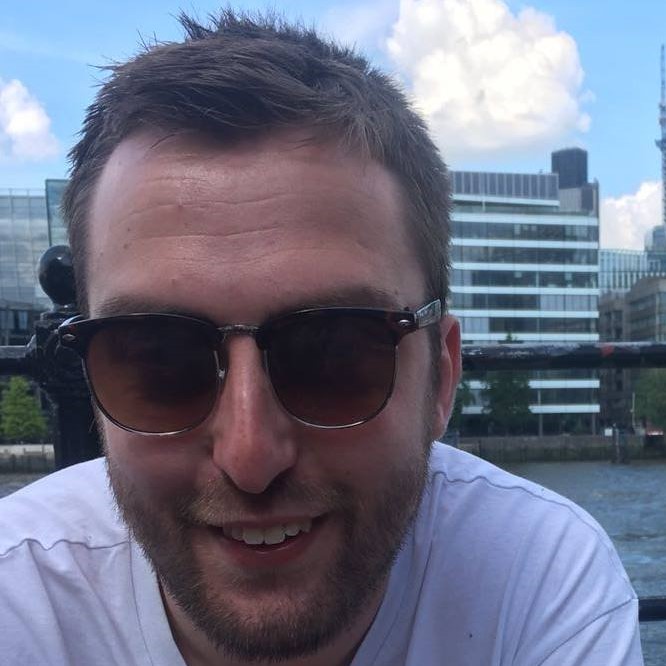Cobra Kai creators break down season 3’s biggest spoilers and reveal a last-minute finale change
Cobra Kai’s key creative voices talk to GamesRadar about all things season 3
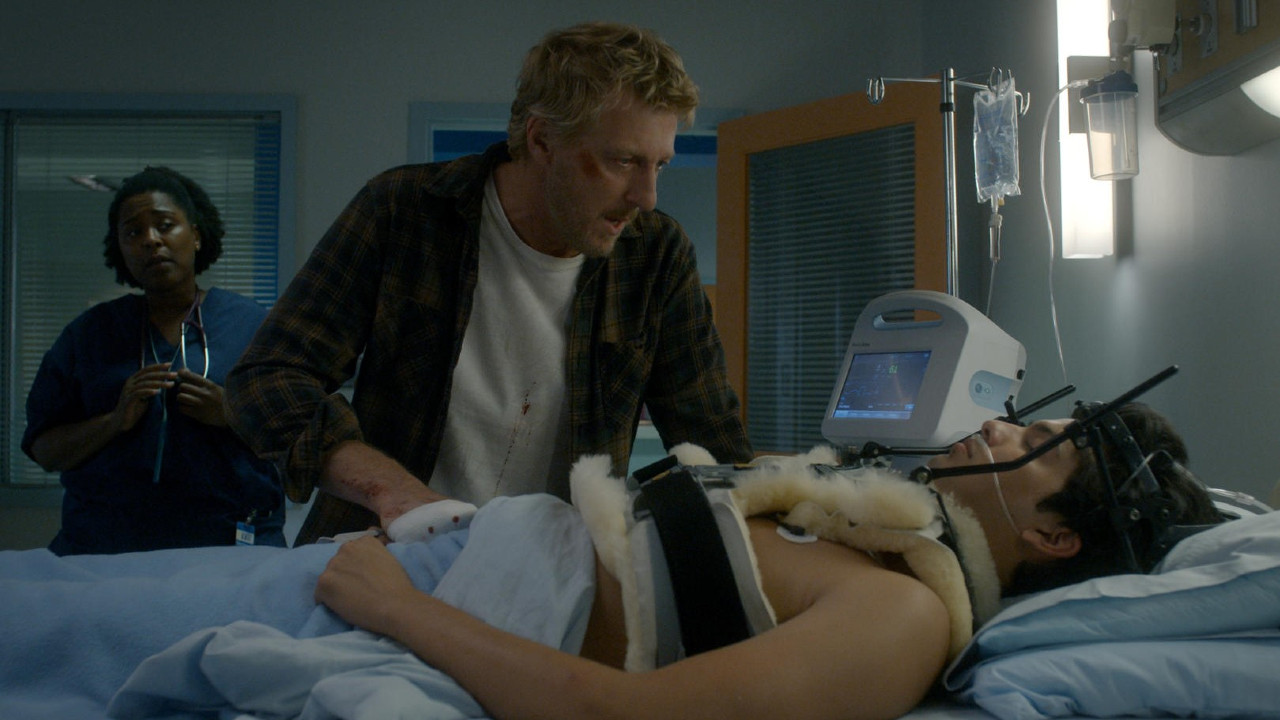
Warning: This article includes major spoilers for Cobra Kai season 3.
Cobra Kai season 3 may only be 10 episodes long – and, let's not kid ourselves, we devoured them within days of them appearing on Netflix – but the new series manages to cram in a whole lot for fans, new and old. Not only do we get several returns from days of Karate Kid past, there's also the small matter of a major villain having his origins and motivations reframed in a series of flashbacks.
Cobra Kai has always thrived on re-examining iconic Karate Kid characters, but rarely has that been more apparent than in season 3. Kreese’s time in Vietnam is explored at length in violent fashion. Along the way (and via a close call with a snake pit) Kreese strikes up a burgeoning friendship with Karate Kid: Part 3 villain, Terry Silver. He even manages to become slightly more sympathetic, a change we never thought possible. Ali (Elisabeth Shue) also makes a comeback in a surprisingly restrained fashion, despite an out-of-nowhere arrival. Each has been a major talking point since the show's launch and each merits further inspection.
GamesRadar+ sat down with Cobra Kai creators Jon Hurwitz, Hayden Schlossberg, and John Heald to talk through some of season 3's edge-of-your-seat moments. The writers reveal how they handled some of the most crucial story beats, how one of the finale’s most impactful moments was borne out of a sudden filming change, and what’s down the road for Cobra Kai. The following Q&A has been edited for clarity.
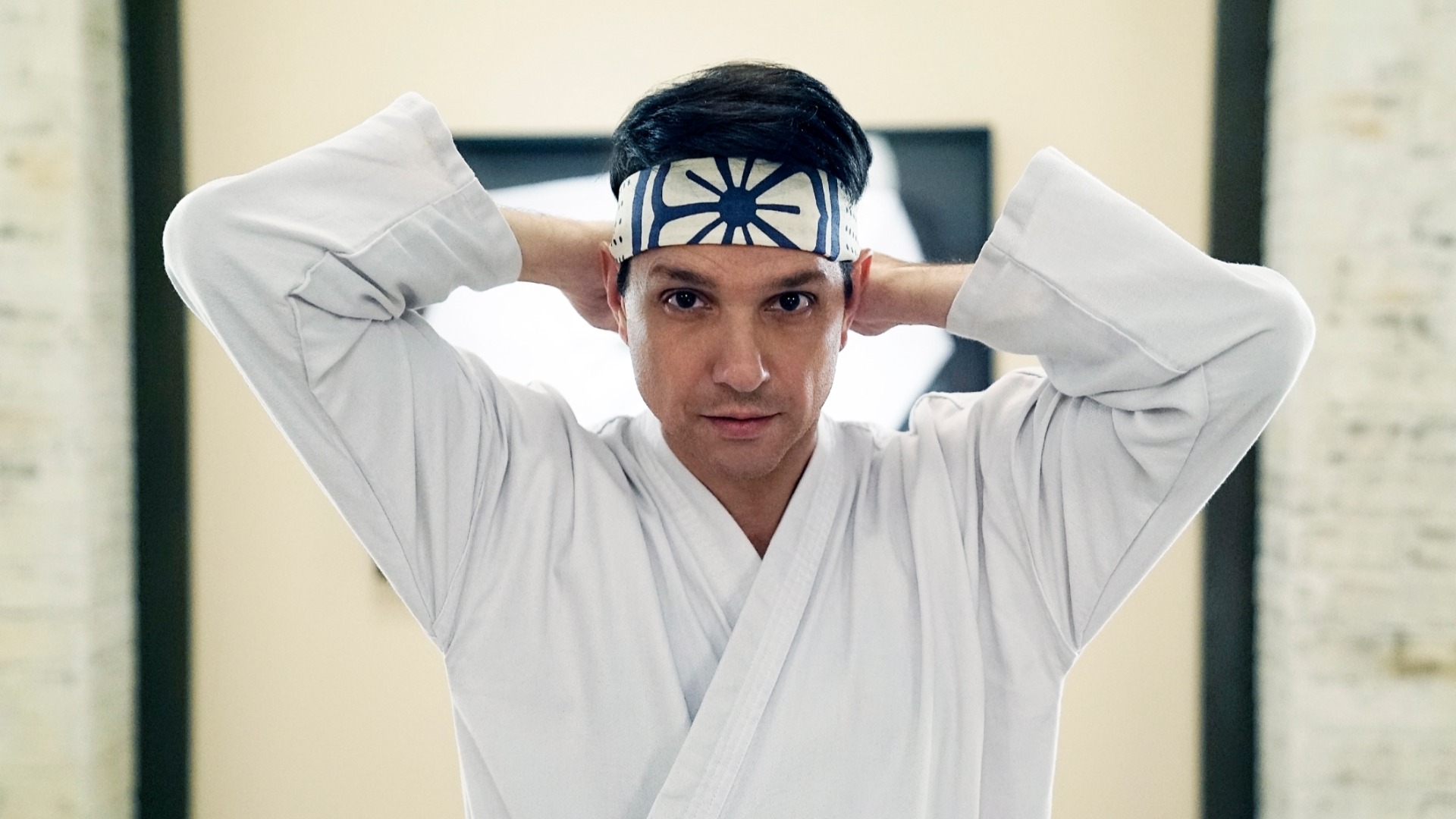
One of Cobra Kai's greatest strengths is how it reframes certain characters and aspects of The Karate Kid. For instance, with Kreese, you made him more sympathetic. What was the thinking behind introducing that aspect of his background in season 3, instead of maybe earlier or later on?
Jon Hurwitz: On our show, as you see from the very beginning of season 1, one of our favourite things is to take characters that you think you know, and then show another side to them. We did that with Johnny very much in season 1. And over the course of the seasons, I think you’ll see that with a number of characters.
For Kreese, we introduce him at the end of season 1, in one scene, and he’s the villainous Kreese that you’ve seen many times – the menacing kind of figure; the Darth Vader of our universe. And in season 2, there were a couple of little moments where you got a hint of what’s going on inside the guy, but you’re not entirely sure exactly what to believe. But, I think you see that there’s some humanity there, and he actually does have an affection for Johnny Lawrence. But Cobra Kai is… at the very top of his priorities. In season 3, you get to see why.
Bringing all the latest movie news, features, and reviews to your inbox
When taking that character that we’ve known for so long, it’s about: how does someone become John Kreese? How does somebody become so focused on this “no mercy” kind of creed that he’s believing in it above all else? He’s a character that we feel… he chose to teach karate to teenagers. He believes that he’s doing something valuable for this world. He’s chosen to be a teacher. But why is he teaching this?
So in season 3, by showing his past, not only in Vietnam but before Vietnam, where he came from, that this was a kid no different than a Daniel LaRusso or a Miguel, who’s an underdog in certain ways, and who has his own set of problems, and his problems are perhaps the most tragic of all. For him to have gone off to war to become a hero, only to deal with all sorts of issues over there, and to have a mentor of his own – a teacher of his own – who taught him philosophies that are just as intent and just as dark, if not more so than some of his teachings, you see where he came from, especially when he was put to the test at the very end.
We felt that it was time for the audience to kind of look at John Kreese in a different way. Just because you know his past, it may not change how you feel about him, but perhaps he does.
Another thing that's well-handled is Elisabeth Shue’s return as Ali. A lesser show would have maybe fallen into the trap of two lovers quarrelling over a former flame. But why was now the time to bring back Ali? And why did you approach her appearance in the way that you did?
Hayden Schlossberg: We had debates on bringing Ali in a little earlier into the story. But we knew from the very beginning that we wanted her entrance to come at a time where our two characters are at a low point, and really need to come together. Because she is sort of the Helen of Troy of this rivalry that started the whole thing, and there was something poetic about her being the one that gets them to realise what the audience has been seeing for three seasons, that they have a lot in common and work better together than apart.
At the same time, we want the audience to be guessing whether or not she’ll return, and playing that— you know, part of the fun of this show is wondering at what point in our soap opera certain characters will come in and come out. And I think people are expecting her to come in at the end of the season as a reveal.
We really liked the idea of just surprising the audience in the penultimate episode – just like, “Boom, she’s there.” And it gave us a few episodes to catch up with her character, and to see where she’s at, and to find out that, oh, you know what, maybe she’s not just the picture-perfect… She’s not living the picture-perfect life that you may think if you saw her Facebook page of Instagram account. And that was the story we were interested in telling with her.
Her appearance did feel very definitive. I’d say one and done. Maybe two and done because it was across two episodes. Is there scope for more exploration with that character?
Hayden Schlossberg: Again, in keeping with our desire to create an entertaining soap opera, I think anything is possible. When we were creating her character, we were thinking about all the different possibilities of where that character could go. You learn that, you know, she’s single, and she has kids of her own. That is now out into the universe, and people can take that and run with it, and maybe we’ll do something with it. Maybe we won’t. And that’s part of the fun of the show.
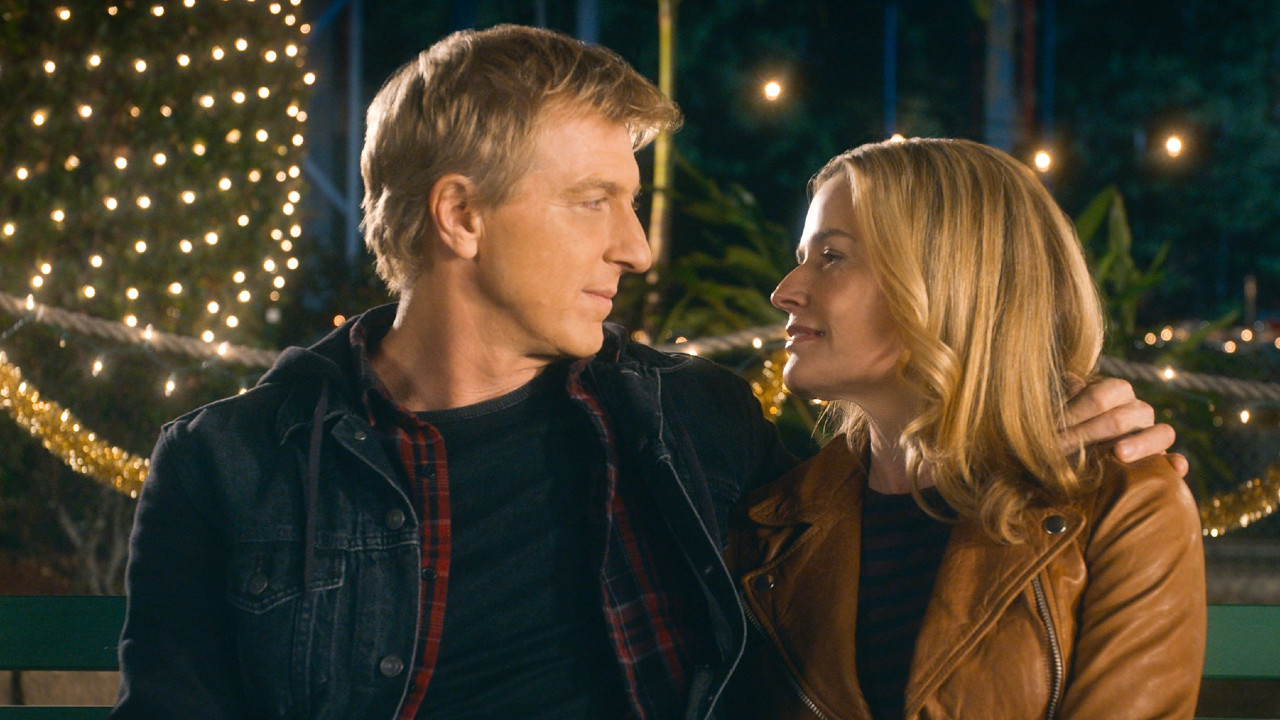
Was there anything you maybe wanted to explore more of in season 3 but couldn’t due to time or other factors?
Josh Heald: Season 3 has so much material in it. It’s probably the first season that we didn’t say, “There are things we want to explore but we’re not going to put it here.” We stuffed so much into season 3, and made it work. It was a challenge, you know, because there were so many storylines. The characters are so spread to the wind at the top of the season, after what happened to Miguel at the close of season 2, that to dive deep with any one of the characters didn’t naturally pull in other characters to their orbit, because everyone felt so fragmented.
So part of the fun challenge of putting together this season was getting to that place where we can find those natural points of intersection again, and unexpected connections with characters that either have, or have not, formed a bond before. And to do that, we had to also look backwards. We’re looking back to the past with both Okinawa, and what we’re doing with Kreese.
It was a fun challenge and a stuffed challenge. And especially with a couple of those episodes in season 3, they’re amongst our longest episodes ever. We definitely have had more that – if we had 15 episodes – we would have done. But we naturally kind of talked about the storyline in season 3 in a way that fed into where we know we’re going with season 4, rather than saying, “Oh, I wish we could do this right now.”
We had more of a sense of: “This is what we’re doing right now, and it’s particularly setting up where we’re going next.”
Josh, talking of fun challenges, you did direct the finale, which had several major set-pieces and major fights. I wonder what that was like in terms of preparation and the execution of those set-pieces, particularly in terms of the LaRusso house fight?
Josh Heald: The LaRusso house fight was an interesting one because the preparation for that was actually to shoot that fight at the Miyagi-do house, in the backyard. Our schedule for the last couple of episodes was maniacal in terms of everything we had to shoot. We were juggling actors’ schedules, location availability, and weather. We were getting into the colder months of the shoot. And nothing was cooperating. It was one of those— I remember, at the beginning of us going into those last couple of episodes, getting a call, and our whole plan for when things were going to shoot, fell completely apart because of all those factors.
So, suddenly, you were shooting things much sooner than you thought. And, for instance, that LaRusso house fight had to move up at least a week-and-a-half. Suddenly, performers who thought they were going to slowly work on this and hone it, had to condense that into a matter of, you know, less than a week.
Did that dramatically change anything?
Josh Heald: Not really. I would say it dramatically changed how we shot it, but not what it was. What we were going to do was the backyard of the Miyagi house – the same scene, the summer between the two sides, culminating in this ambush of sorts. We were going for more of a Lord of the Flies, in terms of that there would be a bonfire, and it would play with the danger of someone being thrown into it, and feeling… there’s obviously the same level of destruction.
The happy accident was that it was going to rain for two nights in a row, and it was going to be 20 degrees, and we were still ready to do it, but there were safety concerns with our actors and our stunt performers in that backyard, in the dark, with uneven ground, and wet, frozen ground.
So our pivot was: “Wow, this would be an aggressive move by Cobra Kai to kick down the front door of the LaRusso house, and essentially trash the place as they try to attack everybody inside of it.” And it was one of those buy-in moments of like: “If we accept that they are just passionate enough to do that, we can actually make more of a meal, and have more fun, here, and Daniel can have more anger, and there can just be so much more of ‘I can’t believe they just did that’.”
Because we’ve already seen Cobra Kai trash the Miyagi-do house once. Not that everyone’s like, “Ah, this happens sometimes.” But I think this took it to another level of “Wow, now I understand why Daniel’s storming over to that dojo and is ready to throw down”.
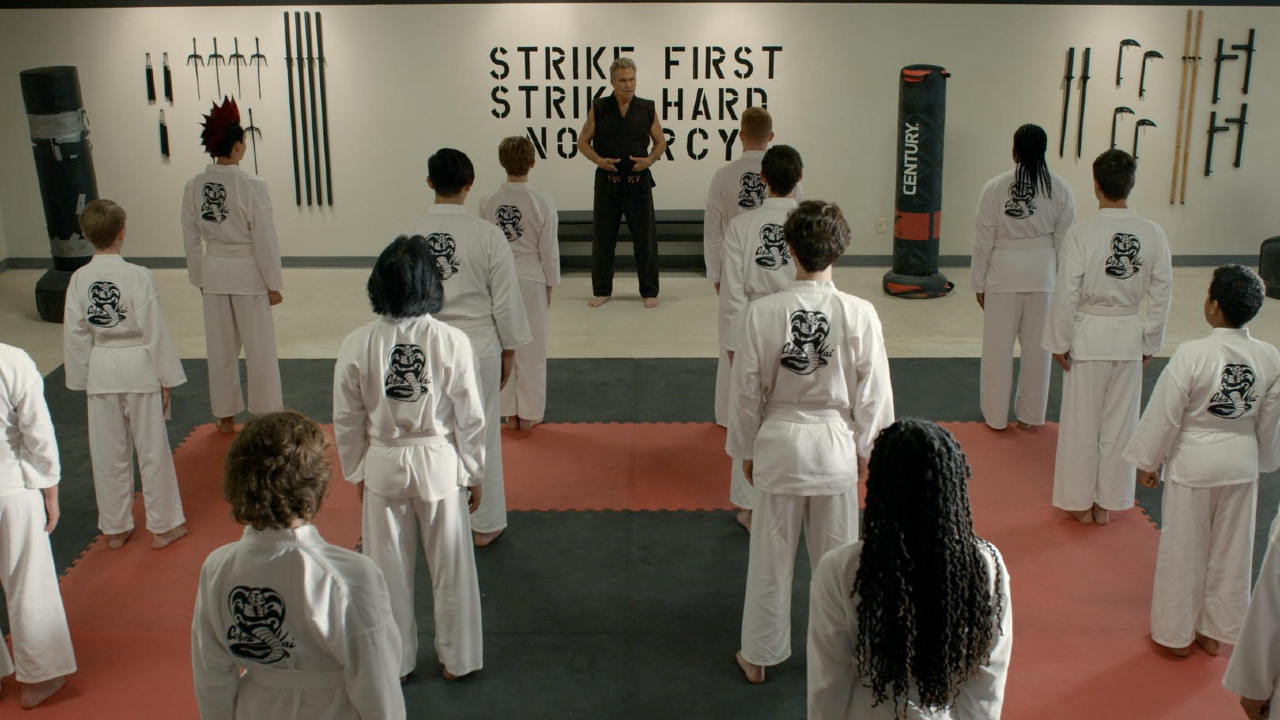
Jon, a quick production update on season 4 – are scripts being handed out? Virtual table reads? What’s going on with that?
Jon Hurwitz: We’ve been working on the scripts for season 4 for a few months now. They’re all coming in. The whole season has been planned out in great detail. We have, in our possession, eight scripts right now. About five of them are sort of in their “ready to shoot” place. The final two scripts, we have detailed outlines, and we’ll have scripts either by the end of 2020 or at the very beginning of 2021.
And we hope to be shooting the show in the coming months. We’re still figuring out some of the specifics, but the intent is for early next year, to get back on set, with all the COVID protocols in place, and to get back to some karate ass-kicking in the valley.
Finally, with it being on Netflix officially for the first time, can we expect a bigger production in terms of production scale, Jon?
Jon Hurwitz: I think it’s going to be a very similar budget. You saw season 3, and you’ve seen season 1. The budgets were not that different between those two seasons, but season 3 is just so much more immense. And season 4, we have big plans, but we feel like we’re able to make it with the same setup we’ve had in the past. If we have some grand ideas that might require a few extra bucks, it’s at least a conversation that we could have with the Netflix team. Whereas I think on YouTube we felt like it was, you know, it is what it is.
But I think that people can expect – when you see season 3, I think season 4 is going to not exceed that and suddenly be like... certainly, our characters aren’t going to be in outer space.
Cobra Kai season 3 is now streaming on Netflix. For more from the streaming service, check out the best Netflix shows and best Netflix movies currently available.
I'm the Senior Entertainment Writer here at GamesRadar+, focusing on news, features, and interviews with some of the biggest names in film and TV. On-site, you'll find me marveling at Marvel and providing analysis and room temperature takes on the newest films, Star Wars and, of course, anime. Outside of GR, I love getting lost in a good 100-hour JRPG, Warzone, and kicking back on the (virtual) field with Football Manager. My work has also been featured in OPM, FourFourTwo, and Game Revolution.
